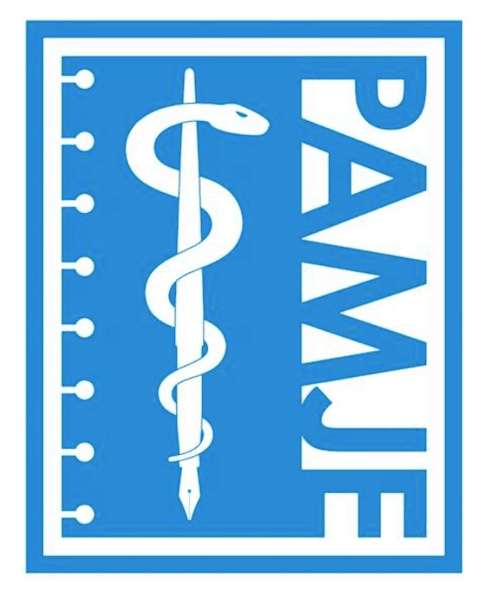Family Centeredness in Mental Health: A Concept Analysis
DOI:
https://doi.org/10.37719/jhcs.2020.v2i1.ra002Keywords:
family, family-centered care, mental health, mental illnessAbstract
Background: Mental illness affects the entire family structure. The family members are the main provider of care that results in caregiving burden. Thus, the care given should encompass the entire family system, termed as family centeredness.
Purpose: This study clarifies the concept of "family centeredness" in mental health to enhance individual and family cares living amid mental illness.
Methods: This research employed Walker and Avant's method of Concept Analysis. Literature was reviewed, and the characteristics that appeared repeatedly were noted and categorized. Data were mapped according to its definition, antecedents, attributes, and consequences.
Results: Three key defining attributes were identified: (a) A mutual, collaborative partnership between the patient, family and health care providers based on knowledge exchange, open communication and cooperation; (b) A supportive, professional relationship/bond/engagement among health care providers, patient and family characterized by empathy, understanding, respect and empowerment; and (c) Individualized care wherein the process is defined by the family is supported, enabling the opportunity to choose, control over decisions and empowerment.
Conclusion: The result of the study clearly defines family centeredness as a health care approach in mental health that acknowledges the patient and family as the experts on themselves, involves families as collaborative partners in all aspects of services and decisions about care through mutually beneficial supportive partnerships with health care providers; to help patients make progress towards recovery.
Downloads
References
Ahmann, E. & Johnson, B.H. (2000). Family-centered care: Facing the new millennium. Pediatric Nursing, 26, 1, 87-90.
Arksey, H. &O'Malley, L. (2005). Scoping studies: Towards a methodological framework. International Journal of Social Research Methodology, 8(1), 19-32. https://doi.org/10.1080/1364557032000119616
Au, A. (2017). Redefining the Family in Mental Health: Understanding Norms and Improving Professional Practice. Mental Health in Family Medicine, 13, 566-569.
Avasthi, A. (2010). Preserve and Strengthen Family to promote mental health. Indian Journal of Psychiatry, 52(2), 113-26. https://doi.org/10.4103/0019-5545.64582
Balbino, F.S., Balierio, M.M. & Mandetta, M.A. (2016). Measurement of Family-centered Care Perception and Parental Stress in a Neonatal Unit. Revista Latino-Americana de Enfermagem, 24, e2753. https://doi.org/10.1590/1518-8345.0710.2753
Bamm, E.L. & Rosenbaum, P. (2008). Family-centered theory: Origins, Development, Barriers, and Supports to Implementation in Rehabilitation Medicine. Archives of Physical Medicine and Rehabilitation, 89(8), 1618-1624. https://doi.org/10.1016/j.apmr.2007.12.034
Brush, BL, Kirk, K, Gultekin, L & Baiardi, JM. (2011). Overcoming: A Concept Analysis. Nursing Forum, 46(3), 160-168. https://doi.org/10.1111/j.1744-6198.2011.00227.x
Caqueo-Urizar, A., Rus-Calafell, M., Urzua, A., Escudero, J., & Guitierrez-Maldonado, J.(2015). The Role of Family Therapy in the management of schizophrenia: challenges and solutions. Neuropsychiatric Disease and Treatment, 11,145-151. https://doi.org/10.2147/NDT.S51331.
Chadda, R.K. (2014). Caring for the Family caregivers of persons with mental illness. Indian Journal of Psychiatry, 56,221-227. https://doi.org/10.4103/0019-5545.140616
Chein, W.T., Leung, S.F., Yeung, F.K., & Wong, W.K. (2013). Current Approaches to treatments for schizophrenia spectrum disorders, part II: Psychosocial Interventions and Patient-focused perspectives in Psychiatric Care.Neuropsychiatric Disease and Treatment, 9,1463-1481.
Duca, F. (2010). Family Network Support and Mental Health Recovery. Journal of Marital and Family Therapy,36(1), 13-27. https://doi.org/10.1111/j.1752-0606.2009.00182.xReferences
Easley, R. (2007). Harmony: A Concept Analysis. Journal of Advanced Nursing, 59(5), 551-556. https://doi.org/10.1111/j.1365-2648.2007.04315.x
Engaging Patients and Families. (2020). American Academy of Pediatrics. https://www.aap.org/enus/professional-resources/practice-transformation/managing-patients/Pages/assessing-family-centeredness.aspx
Family-centered care. (n.d.). Medical Dictionary for the Health Professions and Nursing. (2012). https://medical-dictionary.thefreedictionary.com/family-centered+care
Family-centered care. (n.d.) Medical Dictionary. (2009). https://medical-dictionary.thefreedictionary.com/family-centered+care
Family-centered practice. (n.d.) Child Welfare Information Gateway. https://www.childwelfare.gov/topics/famcentered/
Foster, K., O’Brien, L., & Korhonen, T. (2012). Developing Resilient Children and Families when parents have a mental illness: a family-focused approach. International Journal of Mental Health Nursing, 21(1), 3-11. https://doi.org/10.1111/j.1447-0349.2011.00754.x
Foster, K., Mayberry, D., Rupert, A., Gladstone, B., Grant, A., Ruud, T., Falkov, A., Kowalenko, N. (2016). Family-Focused Practice in Mental Health Care: An Integrative Review. Child and Youth Services, 37, 129-155. https://doi.org/10.1080/0145935X.2016.1104048
Goldfarb, F.D., Devine, K., Yingling, J.T., Hill, A., Moss, J., Ogburn, E.S., Roberts, R.J., Smith, M.A., & Pariseau, C. (2010). Partnering with Professionals: Family-centered care from the parent perspective. Journal of Family Social Work, 13(2), 91-99. https://doi.org/10.1080/10522150903487081
Grant, A & Reupert A. (2016). The Impact of Organizational Factors and Government Policy on Psychiatric Nurses’ Family-FocusedPractice with parents who have a mental illness, their dependent children, and families in Ireland. Journal of Family Nursing, 22(2), 199-223. https://doi.org/10.1177/1074840716643770
Jolley, J. & Shields, L. (2009). The Evolution of Family-Centered Care. Journal of Pediatric Nursing, 24(2), 164-170. https://doi.org/10.1016/j.pedn.2008.03.010
Heru, A.M. (2015). Family-centeredcare in the Outpatient General Psychiatry Clinic. Journal of Psychiatric Practice, 21(5), 381-388. https://doi.org/10.1097/PRA.0000000000000097
Hodgetts, S, Nicholas, D, Zwaigenbaum, L & McConnel D. (2013). Parents’ and Professionals’ perceptions of family-centered care for children with autism spectrum disorder across service sectors. Social Science and Medicine, 96, 138-146. https://doi.org/10.1016/j.socscimed.2013.07.012
Hutchfield, K. (1999). Family Centred Care: a concept analysis. Journal of Advanced Nursing, 29(5), 1178-1187. https://doi.org/10.1046/j.1365-2648.1999.00987.x
Leonard, R.A. & Linden, M. (2018). Family-focused practice for Families Affected by Maternal Mental Illness and Substance Misuse in Home Visiting: A Qualitative Systematic Review. Journal of Family Nursing, 24(2), 128-155. https://doi.org/10.1177/1074840718770612
McNeil, S. (2013). Understanding Family-Centered Care in the Mental Health System: Perspectives From Family Members Caring for Relatives With Mental Health Issues, Social Work in Mental Health, 11(1), 55-74. https://doi.org/10.1080/15332985.2012.720662
Park, M., Giap, T.T., Lee, M., Jeong, H., Jeong M & Go, Y. (2018). Patient and family-centered care interventions for improving the quality of health care: A review of systematic reviews. International Journal of Nursing Studies, 87, 69-83. https://doi.org/10.1016/j.ijnurstu.2018.07.006
Park, S. & Park, K.S. (2014). Family Stigma: a concept analysis. Asian Nursing Research, 8,165-171. http://dx.doi.org/10.1016/j.anr.2014.02.006
Parrish, RA & Chan, E. (2008). Developmental-Behavioral Pediatrics: Evidence and Practice. https://www.sciencedirect.com/topics/medicine-and-dentistry/family-centered-care.
Partnership (2018). Patient Safety. http://www.who.int/patientsafety/implementation/apps/definition/en/
Patient and Family-centered care. (n.d.). Institute for Patient and Family-Centered Care. https://ipfcc.org/bestpractices/sustainable-partnerships/background/pfcc-defined.html
Rose, L.E., Mallinson, R.K. & Walton-Moss B. (2004). Barriers to Family Care in Psychiatric Settings. Journal of NursingScholarship, 36(1), 39-47. https://doi.org/10.1111/j.1547-5069.2004.04009.x
Thompson, C. J. (2018). Commonly used concept analysis methods in nursing: An Introduction to Walker and Avant's 8-step method. https://nursingeducationexpert.com/concept-analysis-methods-walker-avant/
Walker, L.O. & Avant, K.C. (2005). Strategies for Theory Construction in Nursing (4th ed). Pearson Education.Wells, N. (2011). Historical Perspective on Family-Centered Care. Academic Pediatrics, 1192), 100-102. https://doi.org/10.1016/j.acap.2011.01.007
Whittaker, N. (2017). Disorders and Interventions. https://books.google.com.ph/books?id=eFFdDwAAQBAJ&dq=norma+whittaker+family+centered+therapy&source=gbs_navlinks_s
Williams, K. (2014). Building on a Culture ofPatient and Family Centred Care in the Mental Health Setting, Masters Thesis. Retrieved from ProQuest, (Accession No. 1571419).
Wong. O.L. (2014). Contextual Barriers to the successful implementation of Family-centeredpractice in Mental Health Care: A Hongkong Study. Archives of Psychiatric Nursing, 28(3), 212-219. https://doi.org/10.1016/j.apnu.2014.02.001
Wong, O.L., Suk Fan Wan, E. & Lai Tuen Ng, M. (2016). Family-centeredcare in Adult's mental health: Challenges in Clinical Social Work Practice. Social Work in Mental Health, 14(5), 445-464. https://doi.org/10.1080/15332985.2015.1038413


.png)





